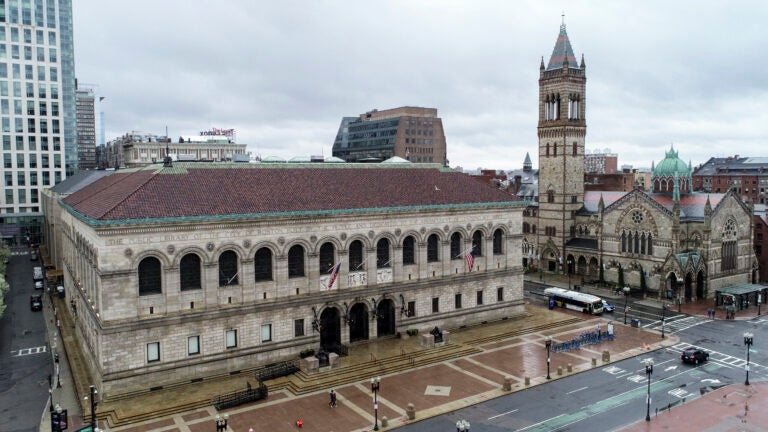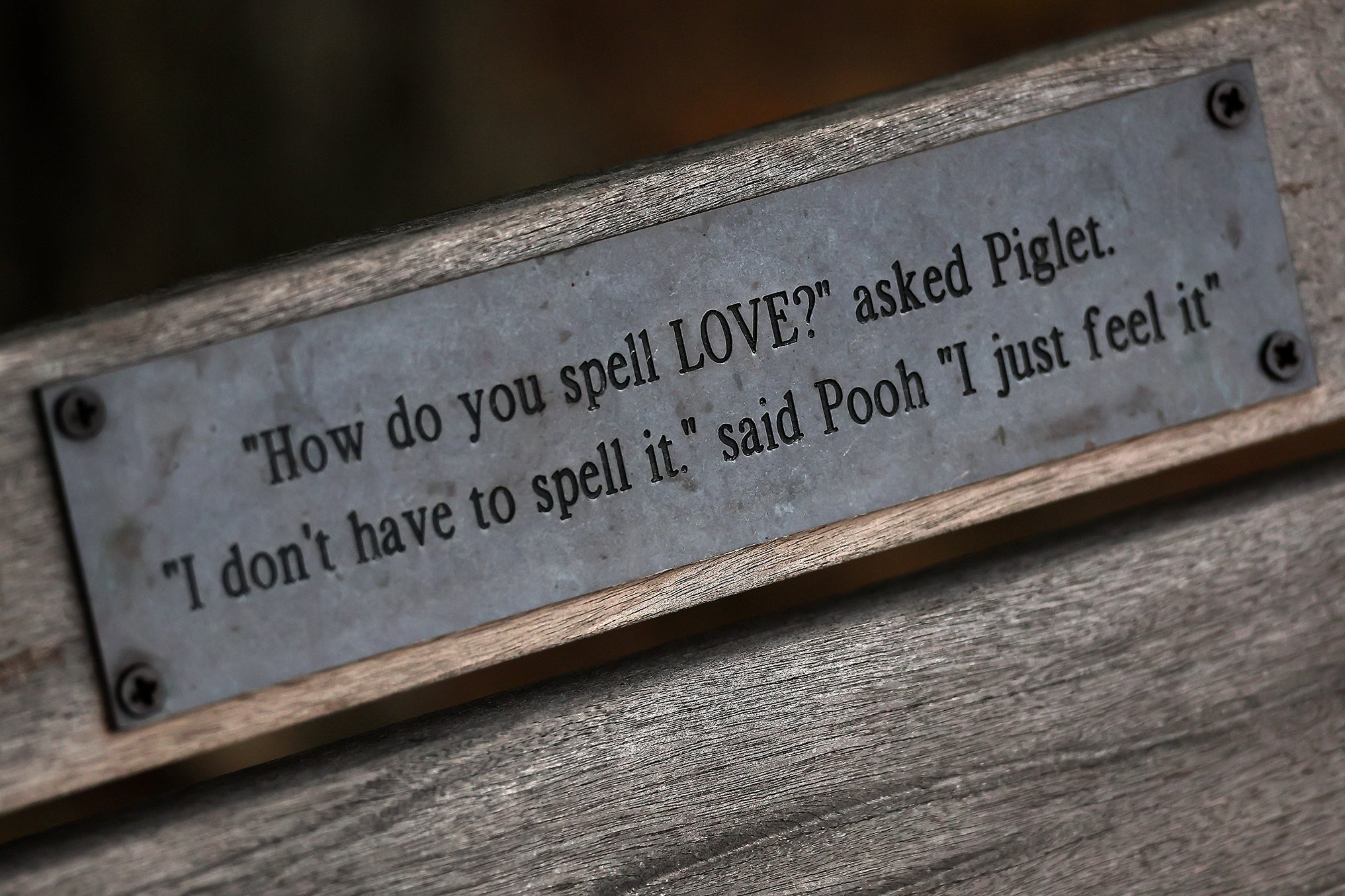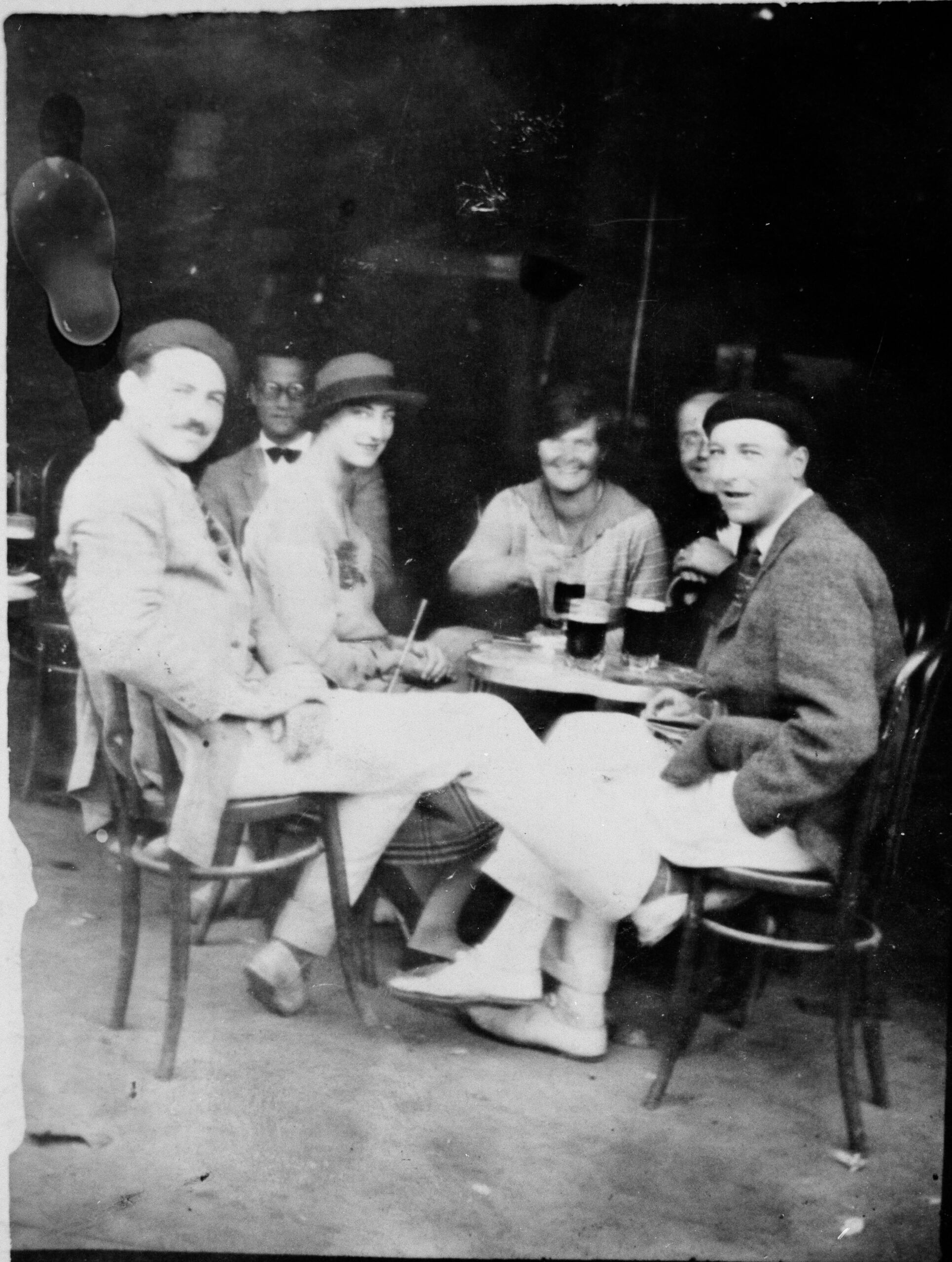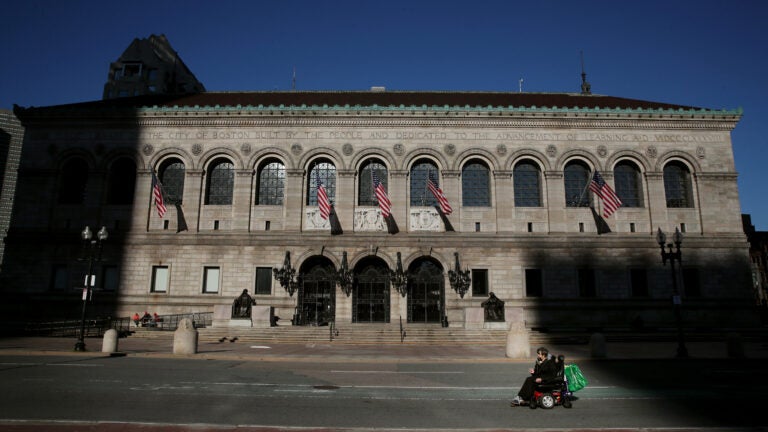Hint: A certain honey-obsessed bear is still teaching timeless lessons.

Boston Public Library. (Blake Nissen/ For The Boston Globe)
September 22, 2025 | 4:45 PM
4 minutes to read
As the Associates of the Boston Public Library narrows the field of contenders for their annual Hundred-Year Book Debate, we asked Boston.com readers to weigh in on which book from 1926 has had the most lasting impact.
Hundred-year book debate: Which 1926 classic still stands the test of time?
Readers were both passionate and nostalgic, choosing books that have weathered the test of time – as well as sharing which books from our current moment will be remembered a century from now.
When we asked readers to weigh in on the eight books selected by the Associates of the Boston Public for debate, we heard from 194 readers.
In a close race, “Winnie-the-Pooh” by A. A. Milne emerged as the best book with 86 votes, narrowly edging out “The Sun Also Rises” by Ernest Hemingway, which received 85 votes.
Other contenders included T. E. Lawrence’s “Seven Pillars of Wisdom: A Triumph” (12 votes), Sean O’Casey’s “The Plough and the Stars” (5 votes), Langston Hughes’ “The Weary Blues” (4 votes), and Willa Cather’s “My Mortal Enemy” (2 votes). Edna Ferber’s “Showboat” and Zona Gale’s “Preface to Life” both received no votes.
Which of these books do you think is the best?
“My Mortal Enemy” by Willa Cather
“Showboat” by Edna Ferber
“Preface to Life” by Zona Gale
“The Sun Also Rises” by Ernest Hemingway
“The Weary Blues” by Langston Hughes
“Seven Pillars of Wisdom: A Triumph” by T. E. Lawrence
“Winnie-the-Pooh” by A. A. Milne
“The Plough and the Stars” by Sean O’Casey
For many readers, Winnie-the-Pooh is more than just a children’s book. It’s a treasure trove of simple wisdom, tender friendship, and “timeless life lessons,” according to reader Nancy J. from Arlington.
Kathleen from Weymouth echoed this sentiment, writing that the book endures to remain “a classic still enjoyed today.”
On the other side of the literary spectrum is Ernest Hemingway’s “The Sun Also Rises,” a portrayal of a WWI veteran struggling with meaning and purpose. Many readers commented that the story and its characters feel as relevant today as they did in the 1920s.
Massiel P. from Miami, Florida put it succinctly: “Even with the passing of time, it remains a novel that captivates every reader. The character of Brett Ashley stands out as a remarkably powerful figure, and it is a work where Hemingway’s iceberg theory is masterfully established.”
As part of our poll, we also asked readers which modern books they believe will still resonate 100 years from today.
Susanne D. from Jamaica Plain said “Pachinko” by Min Jin Lee would still captivate future generations. “It’s a family saga that is so well-crafted with such engaging and interesting characters. One of the best books I have read in a long time,” she said.
Similarly, Jeff L. from Killingworth, Connecticut, suggested “The Ionian Mission” by Patrick O’Brian, calling the Aubrey-Maturin series “the best historical fiction ever.”
However, not all the suggestions were centered on epic, historical sagas. Cynthia from Cambridge took a different route, recommending “Cunk on Everything” by Philomena Cunk – a comedic encyclopaedia of “all human knowledge.”
While Boston.com readers may have reached a consensus on the best book from 1926, the real verdict – and the three finalists – are still up for debate. Readers can vote to narrow the Associates of the BPL’s list to three contenders by Sept. 27. A live debate will take place from 6 p.m. to 8 p.m. in the Rabb Auditorium in the Central Library at Copley Square on Feb. 10, 2026.
Below, readers share their thoughts on the best book from 1926.
Responses have been lightly edited for grammar and clarity.
Which of these books do you think is the best? A bench plaque beside the Chestnut Hill Reservoir quotes author A.A. Milne’s characters from the Winnie the Pooh books. Lane Turner/Globe Staff“Winnie-the-Pooh” by A. A. Milne
A bench plaque beside the Chestnut Hill Reservoir quotes author A.A. Milne’s characters from the Winnie the Pooh books. Lane Turner/Globe Staff“Winnie-the-Pooh” by A. A. Milne
“Winnie the Pooh, by A.A. Milne, is one of the best books written of all time. Every child, from a rich family or a poor family, can read Winnie the Pooh, and become a part of the Hundred Acre Wood, and learn the true meaning of friendship, and that we should help each other because we are all in the same boat.” – Margot W., Boston
“A beautiful, quiet series of books. Something needed for children of all ages.” – Josephine S., Brookline
“Everyone needs a good book to read to a child. A few years ago, I came across the 75th anniversary edition and bought it, to enjoy with my grandchild. I usually will get a Pooh book as a gift for a new edition to a family.” – L.P.W., Malden
“The simple premise of living your best life against all odds through a fable-like story that speaks to all.” – M.R., Yarmouth
 (Left to right) Ernest Hemingway, Harold Loeb, Lady Duff Twyson (wearing hat), Hadley Hemingway, Don Stewart, and Pat Guthrie sitting at a cafe in Pamplona, Spain during summer 1925. – Ernest Hemingway Collection, John F. Kennedy Presidential Library and Museum“The Sun Also Rises” by Ernest Hemingway
(Left to right) Ernest Hemingway, Harold Loeb, Lady Duff Twyson (wearing hat), Hadley Hemingway, Don Stewart, and Pat Guthrie sitting at a cafe in Pamplona, Spain during summer 1925. – Ernest Hemingway Collection, John F. Kennedy Presidential Library and Museum“The Sun Also Rises” by Ernest Hemingway
“Hemingway’s story about disaffected young people trying to forget about the awful recent past still resonates a century later and stands as one of the best examples of the author’s pared-down style.” – Noah B., Mansfield
“The first time I was introduced to Hemingway was in college, but my boyfriend and I at the time would read his short stories out loud and fell in love with ‘The Nick Adams Stories.’
As we got married and had children, I read ‘The Old Man and the Sea’ to my middle son, Luke who loves fishing … We are such Hemingway fans that our WiFi is named ‘The Old Man and the Sea.’ His books stand the test of time!” – Sherry Ann M., Pittsgrove, New Jersey
“Name recognition and they built an industry off the book.” – Jeff, Belmont
“It’s a true classic of 1926, and it established Hemingway as an important voice in literature.” – Scott, South New Jersey
Boston.com occasionally interacts with readers by conducting informal polls and surveys. These results should be read as an unscientific gauge of readers’ opinion.

Annie Jonas is a Community writer at Boston.com. She was previously a local editor at Patch and a freelancer at the Financial Times.
Sign up for Book Club
Stay up to date on local books news, events, and recommendations from Boston.com.

